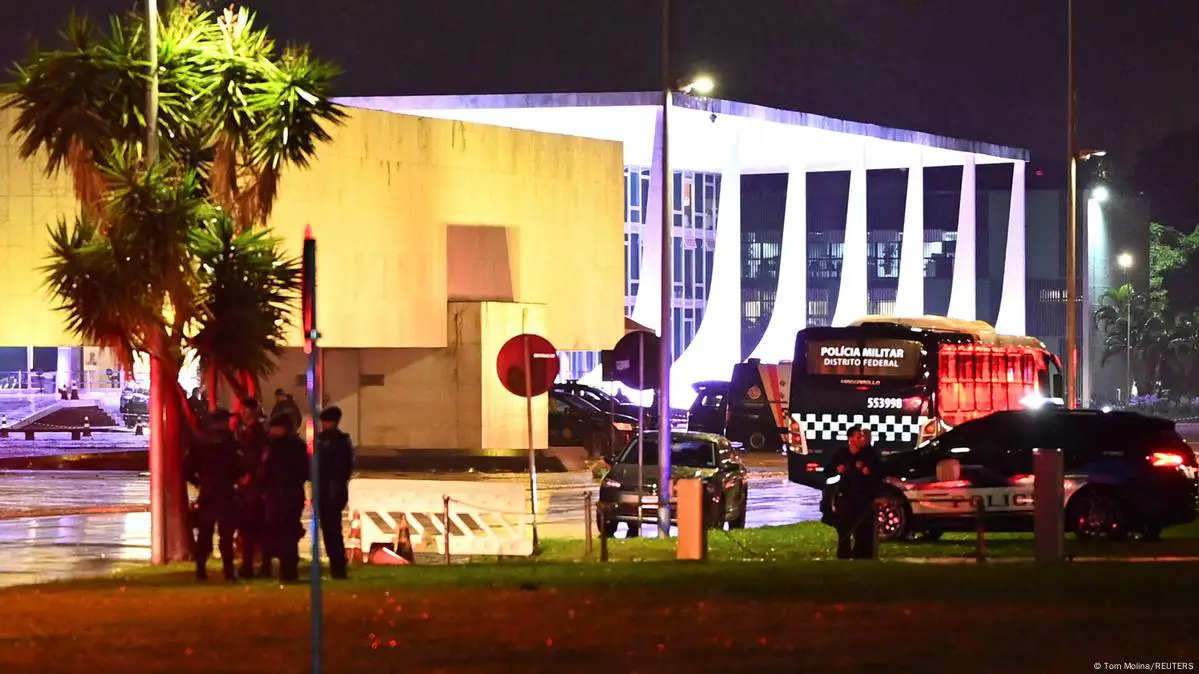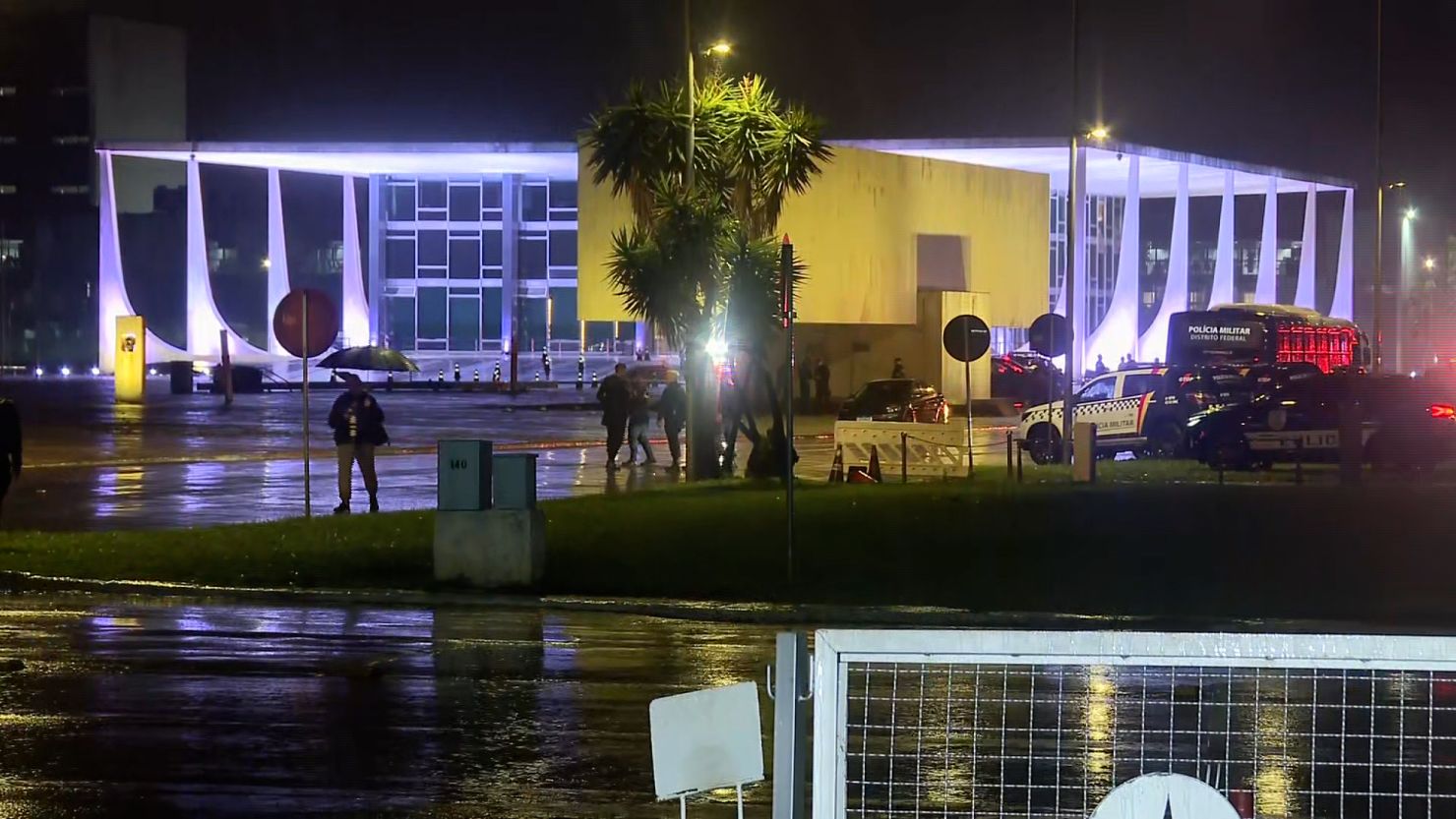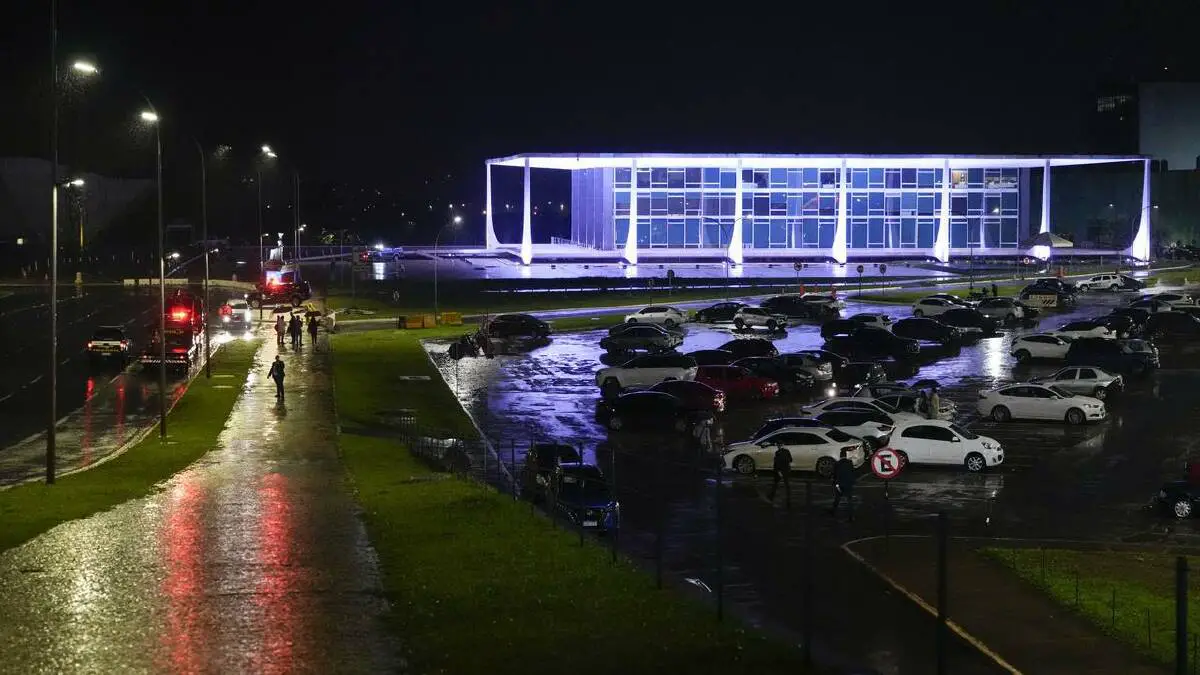The recent attempted attack on Brazil’s Supreme Court—ending in the tragic death of the attacker—raises serious questions for Brazil’s national security and the stability of South America.
On a Wednesday evening in Brasilia’s Praça dos Três Poderes, where the Supreme Court, the presidential palace, and Congress reside, Francisco Wanderley Luiz, a former political candidate affiliated with the Liberal Party, detonated explosives he had carried, causing widespread alarm.
Although no one else was physically harmed, the event left Brazil in shock, reigniting concerns over the rise of politically motivated violence and extremism in the region.

A Disturbing Reminder of January’s Mass Disorder
In January 2023, Brazil experienced one of its most harrowing days in recent history when supporters of former President Jair Bolsonaro stormed Praça dos Três Poderes, damaging key government buildings in a scene that reminded many of the U.S. Capitol riots of 2021. The recent explosion, on the same plaza, underscores the persistence of a tense political atmosphere and the vulnerability of these national institutions to further attacks.
Francisco Luiz, a former Liberal Party candidate and Bolsonaro supporter, attempted this act of violence shortly before a high-stakes G20 summit in Brazil. While Luiz’s attack has thus far been classified as a “lone wolf,” the implications of such an incident extend beyond Brazilian borders.
In South America—a region already facing significant political volatility and emerging extremist threats—the repercussions of this incident are being felt acutely by neighboring countries. These states fear the rise of political violence spreading across borders and destabilizing the region’s fragile security landscape.
Political Violence and the Rise of Extremism
The attempted bombing in Brasilia illuminates the growing polarization within Brazil, where ideological divisions have intensified political violence and created conditions conducive to extremism. Luiz’s background—a failed candidate for public office affiliated with the far-right Liberal Party—suggests a possible link between political disenfranchisement and the lure of extreme action. Although Bolsonaro himself condemned the attack and called for “unity,” his political base remains divided, with fringe supporters more willing than ever to act outside the law.
For Brazil, a nation with a history of democratic struggle, this event suggests that domestic political instability has reached a point where extreme factions may increasingly consider violent measures to achieve political ends. Yet, this issue is not unique to Brazil. Other South American nations, including Argentina, Colombia, and Chile, have seen recent spikes in political violence, revealing an emerging pattern of radicalized individuals and groups operating throughout the region.

Regional Security Threats and the Fear of Contagion
The regional security implications of this attack in Brazil are profound. South America is interconnected, with shared economic ties, political alliances, and social challenges. A security threat in one country often spills into others, creating a ripple effect that destabilizes the region as a whole. As South America’s largest economy, Brazil plays a critical role in the region’s stability; events in Brasilia can influence political climates across the continent. Neighboring countries, particularly those with a history of political violence, are now on heightened alert for signs of similar attacks or extremist groups gaining traction within their borders.
For instance, Colombia’s ongoing struggle with paramilitary groups, Argentina’s recent high-profile assassination attempt on its vice president, and Chile’s political clashes are just a few examples of how political unrest has taken hold in various forms across South America.
As Brazil grapples with the security concerns stemming from Luiz’s actions, other nations face the risk of contagion, wherein the tactics, ideologies, and motivations seen in Brasilia inspire like-minded extremists elsewhere.

The Role of Intelligence and Regional Cooperation in Counterterrorism Efforts
In the aftermath of the attempted bombing, Brazil’s intelligence and security agencies have ramped up their surveillance and investigative operations to better understand the motivations and networks behind these acts of political violence. Authorities have yet to establish any direct ties between Luiz and an organized terrorist group. However, his background and political affiliations may suggest that he was influenced by broader ideological forces, even if he acted alone.
Brazil’s national intelligence strategy is currently being scrutinized, with government officials looking for ways to improve intelligence-sharing and preemptive measures. The incident has spurred discussions on revisiting Brazil’s internal security policies, particularly regarding the surveillance of politically active individuals with ties to extremist ideologies.
This push for stronger intelligence capabilities in Brazil has also fostered closer collaboration with other South American countries. Intelligence-sharing agreements, joint security task forces, and multilateral counterterrorism strategies are being discussed to bolster regional defenses against a potential surge in lone-wolf attacks and politically motivated violence.

Brazil’s International Standing and the Upcoming G20 Summit
The timing of this attack is particularly concerning as Brazil prepares to host the G20 summit, which will bring world leaders to Rio de Janeiro for high-stakes discussions on global economics and security. The Supreme Court attack in Brasilia just days before the summit will likely be perceived as a security vulnerability, casting a shadow over Brazil’s ability to ensure safety at a major international event.
The specter of violence not only damages Brazil’s global reputation but also risks shifting the narrative at the summit itself. Instead of focusing solely on Brazil’s role as a leader in global economics and environmental policy, discussions may veer into questions of security and the underlying instability that currently grips the nation. Hosting global leaders like China’s President Xi Jinping is an opportunity for Brazil to showcase its economic resilience and stability. Yet, the recent attack may reinforce concerns among other G20 nations about the broader issue of political extremism worldwide, influencing their strategic focus.
The Need for a Broader Regional Security Dialogue
Beyond the immediate response to this attack, the incident presents an opportunity for Brazil and its neighbors to establish a more integrated regional security dialogue. A collective response that addresses the sources of political extremism and violence across South America could strengthen the continent’s overall security.
Brazil and other South American countries must come together to create a long-term strategy that addresses the root causes of political extremism. Economic instability, disenfranchisement, and social inequalities often fuel extremism, prompting individuals like Luiz to take drastic, violent actions. Addressing these foundational issues through multilateral cooperation may lessen the risk of radicalization and reduce the appeal of extremism across borders.

A Call for Unity and Stability in South America
For Brazil, Luiz’s attack is a sobering reminder of the country’s political fractures and the dangers of political polarization. Bolsonaro’s call for an “environment of unity” in the aftermath is notable, particularly as he faces criticism for emboldening extremist elements within his base. While his appeal for peace may resonate with some, it underscores the difficult balance that Brazil must strike in allowing free expression of differing political ideas while ensuring that political tensions do not escalate into violence.
The recent attack on Brazil’s Supreme Court is not an isolated event; rather, it reflects a broader trend of political instability and extremism that has the potential to impact all of South America. Luiz’s actions remind the region of the need to address political divisions, reinforce security frameworks, and strengthen counterterrorism measures to ensure that these dangerous ideologies do not gain further traction. As Brazil and its neighbors grapple with these challenges, a cohesive and proactive approach to regional security could be the best defense against the rise of political extremism, safeguarding not only Brazil’s democracy but also the future stability of South America as a whole.



